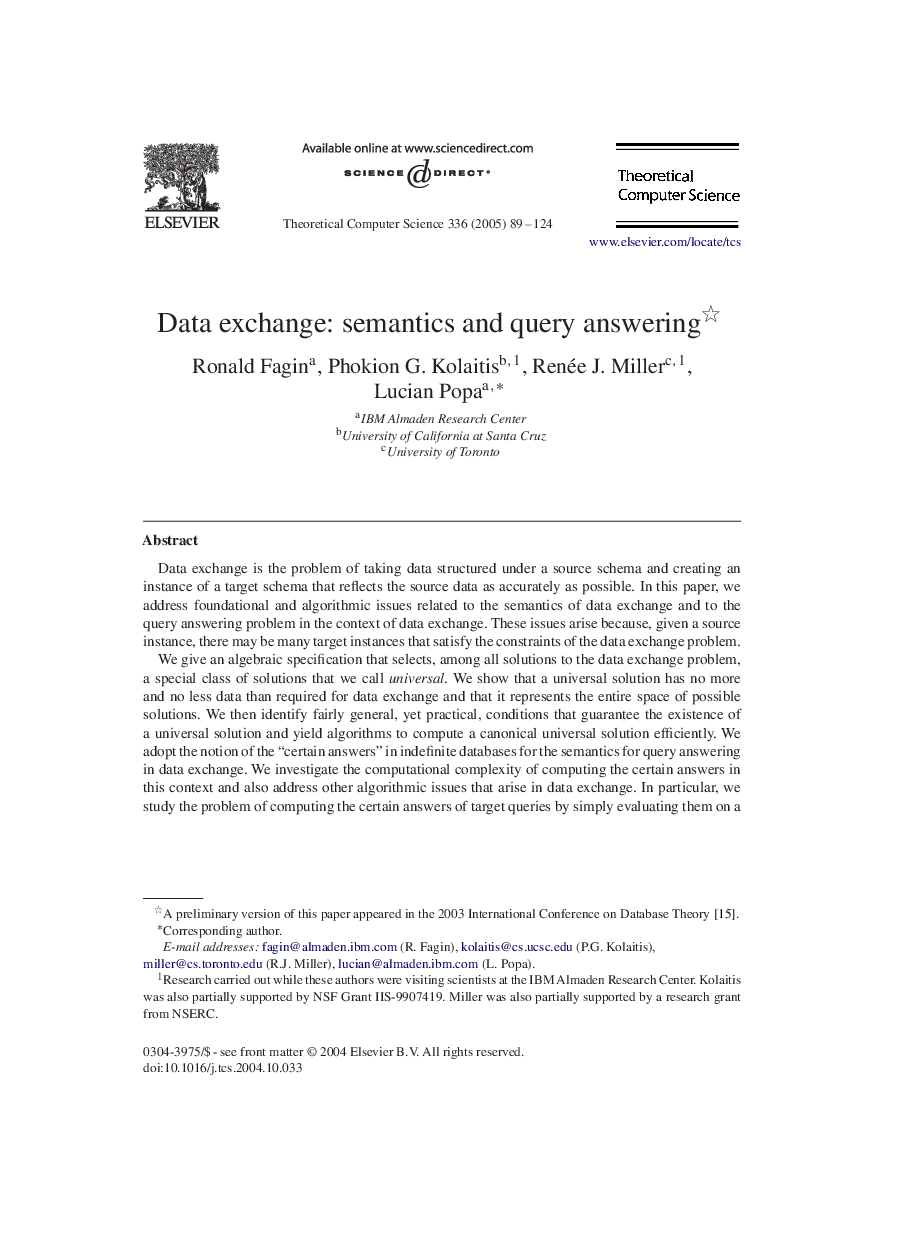| Article ID | Journal | Published Year | Pages | File Type |
|---|---|---|---|---|
| 10334279 | Theoretical Computer Science | 2005 | 36 Pages |
Abstract
We give an algebraic specification that selects, among all solutions to the data exchange problem, a special class of solutions that we call universal. We show that a universal solution has no more and no less data than required for data exchange and that it represents the entire space of possible solutions. We then identify fairly general, yet practical, conditions that guarantee the existence of a universal solution and yield algorithms to compute a canonical universal solution efficiently. We adopt the notion of the “certain answers” in indefinite databases for the semantics for query answering in data exchange. We investigate the computational complexity of computing the certain answers in this context and also address other algorithmic issues that arise in data exchange. In particular, we study the problem of computing the certain answers of target queries by simply evaluating them on a canonical universal solution, and we explore the boundary of what queries can and cannot be answered this way, in a data exchange setting.
Related Topics
Physical Sciences and Engineering
Computer Science
Computational Theory and Mathematics
Authors
Ronald Fagin, Phokion G. Kolaitis, Renée J. Miller, Lucian Popa,
